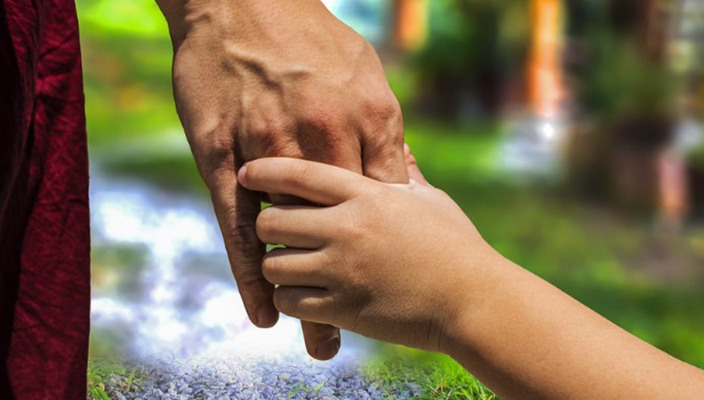
The day after the acts of terror and hate in Charlottesville, VA, in summer of 2017, my friend and colleague Sara posted the following on Facebook:
My son asked me when he went to camp to write to him via camp email about current events. I don't know what to do. What would you do? I can't support him when he reads what I write, and I don't think that his age group at camp will discuss this.
What followed was a heartbreaking discussion that revealed our shared struggle: How do we help our children understand this world? How do we both protect them and make sure that they are knowledgeable enough to take action when needed?
These days, I find that this struggle not only applies to my parenting, but to me as well. How much time do I spend online Googling what’s happening in the world? When do I walk away from it? When do I do I take a Sunday afternoon to march, and when do I take a Sunday afternoon to watch a movie with my family?
Jewish tradition provides wisdom on how to handle these moments – both as parents and as individuals: Don’t be afraid to learn. Take large actions. Embrace small acts. Tell the stories to your children, and know when to let it go.
1. Don’t be afraid to learn.
One of the greatest mitzvot (actions that bring us closer to the Divine) of Judaism is learning. It is as much a part of our tradition as holiday celebrations and bagels with shmear.
Our tradition is unique in that throughout our sacred commentaries we have preserved both the majority decision and the minority position. Why? Because we have an obligation to learn and understand all views, even when they differ from our own.
Don’t be afraid to learn. Push yourself to read the full article. Read the perspectives that are different than your own. Fact check the stories. Watch the commentary to understand the nuances. Choose what your children are ready to hear. Embrace the learning, even when it is painful to do so.
2. Take large actions.
The rabbis tell the story that Abraham, as a small boy, went in to his father’s idol shop and smashed all of the idols to show that they were not gods at all, but just stone and pottery.
What do we learn from this? Sometimes you need to go big. Go on marches. Give generous donations. Volunteer your time. Show up for rallies and for when your voice is needed. Do the things that will not only make a difference, but help you know you are making a difference.
If you can and it feels comfortable, bring your children with you. Let them not only hear about the terrible things going on, but also feel a part of the people who are taking action.
3. Embrace small acts.
I have been pushing myself to smile and make eye contact with people who I wouldn’t normally. Sometimes it is awkward (I think one guy at the grocery store thought I was flirting), but in most cases, there has been appreciative nod.
In our Torah we find the words: You shall love the stranger as yourself. This isn’t an easy love. This is an audacious love – a love that pushes us out of our comfort zone. Change isn’t only made in large meeting rooms and rallies with thousands of people. Change is often made by one person reaching out to another in small, but important, acts of love.
4. Tell the stories to your children.
Each Passover, we fulfill the mitzvah of telling our children the story of our people. However, we often stop there and don’t tell the stories of justice we are still creating.
A friend of mine once pointed out that if you give tzedakah (charity) every month, but you never tell your children, then they will never know to do this act in their own lives. Teach your children. Tell them the stories of the actions you are taking. Point out the moments you make eye contact with a stranger. As they get older, tell them about the struggles of our people and of all people who struggle for justice in our world.
5. Know when to let it go.
Our tradition is very smart. Each week it gives us Shabbat, a break from our work and our regular worries. The lesson of Shabbat is even more profound than the day: Sometimes we need to step away and let it all go.
Find the moments that are holy for you – moments of Shabbat rest. Whether they are at dinner tables with challah and candles or in the sunshine at the park, honor those moments. Put down your phone. Let go of the worries. Let you and your family breath and remember the goodness in our world. Shabbat is not a gift to disengage from the world permanently. It is an opportunity to rest and recharge so we can enter the world again.
To delve deeper on this topic, check out Helping Children to Process Acts of Terrorism, written by Rabbi Edythe Held Mencher, who is also a social worker. As she writes, “Together, we can take actions that restore a sense that there is indeed love, justice, protection, and order in our world.”
